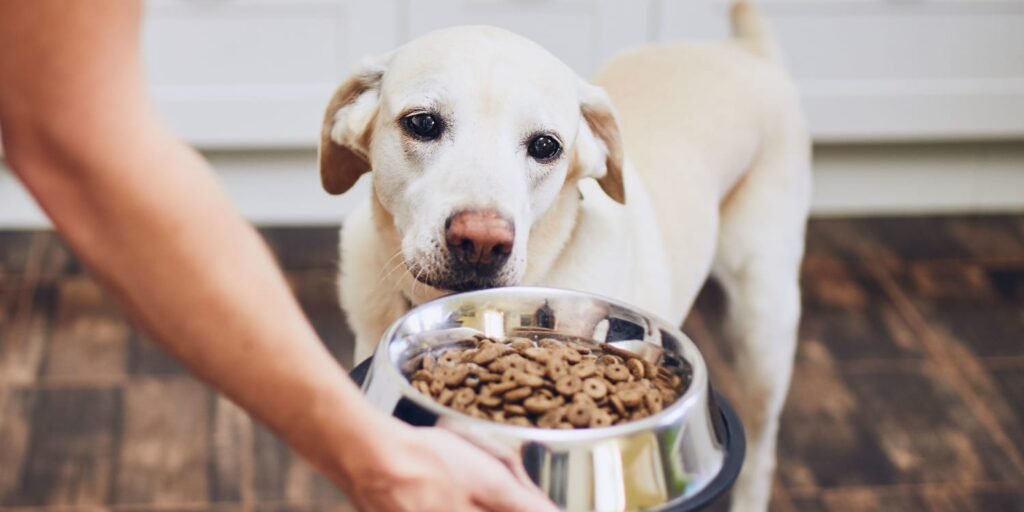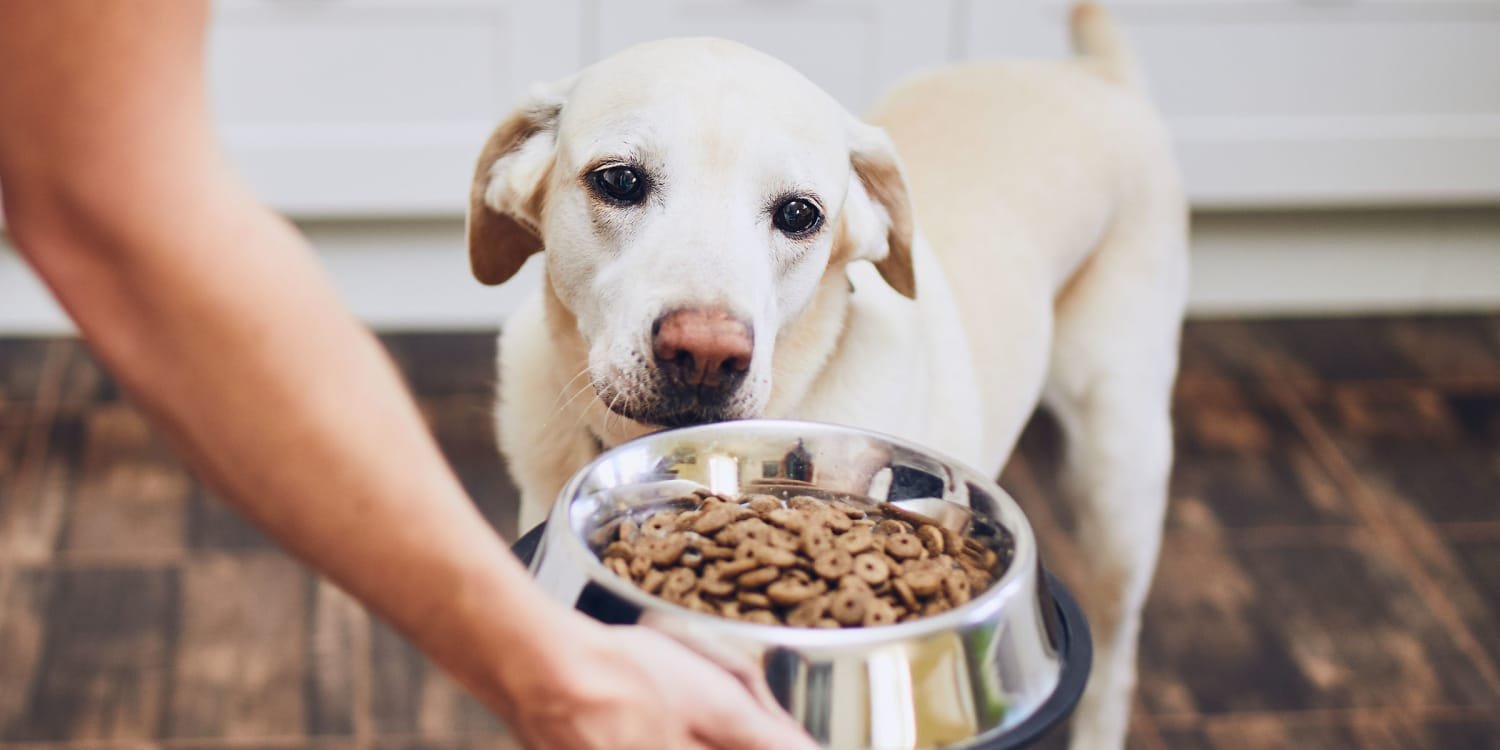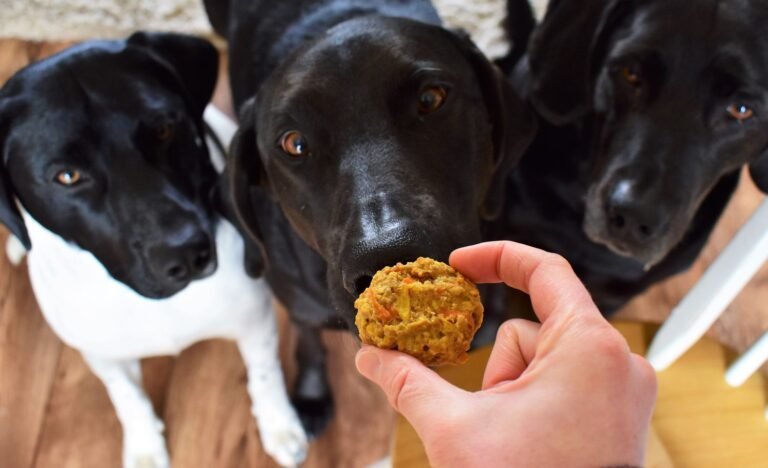Choosing the Best Grain-Free Dog Food for Your Labrador

Grain-free dog food is gaining popularity among Labrador Retriever owners, and it’s easy to see why. It can offer benefits like better digestion, healthier skin, and increased energy. If you’re thinking about switching to a grain-free diet for your Labrador, understanding their specific nutritional needs and how grain-free diets work is essential. This comprehensive guide will cover everything you need to know to make the best choice for your canine companion.
1.Why Consider Grain-Free Dog Food for Your Labrador?
Grain-free dog food excludes typical grains like wheat, corn, and soy, which are frequently used as fillers in conventional dog foods. For some Labradors, these grains might lead to digestive problems, skin issues, or allergic reactions. A grain-free diet replaces these grains with alternative carbohydrate sources like sweet potatoes, peas, or lentils.
Benefits of Grain-Free Dog Food:
- Reduced Allergies: For Labradors with grain sensitivities, a grain-free diet can help alleviate symptoms like itching, ear infections, and digestive discomfort.
- Improved Digestion: Some Labradors have difficulty digesting grains, leading to gas, bloating, or loose stools. Grain-free options often provide easier-to-digest ingredients.
- Healthier Coat and Skin: Grain-free diets often include higher levels of omega fatty acids, which promote a shinier coat and healthier skin.
- Stable Energy: By avoiding blood sugar fluctuations from certain grains, your Labrador might enjoy more even energy levels throughout the day.
While grain-free dog food can offer these benefits, it’s essential to choose a high-quality product that meets all your Labrador’s nutritional needs.
2.Key Nutrients to Look for in Grain-Free Dog Food
Labrador Retrievers are active, large-breed dogs with specific nutritional requirements to support their health and vitality. When selecting grain-free dog food, it’s crucial to ensure it contains all the essential nutrients your Labrador needs.
Essential Nutrients:
- Protein: Labradors need high-quality protein to maintain muscle mass and support overall health. Look for dog foods with animal-based proteins like chicken, beef, or fish as the first ingredient.
- Healthy Fats: Fats are a vital energy source and support brain function, skin health, and coat condition. Omega-3 and omega-6 fatty acids are particularly important for Labradors.
- Essential Nutrients: Choose dog food with a good mix of vitamins and minerals, such as calcium for strong bones and antioxidants to boost immunity.
- Joint Support: Look for glucosamine and chondroitin in the food, which help maintain joint health, particularly important for large breeds like Labradors prone to joint problems.
- 4o mini
Selecting a grain-free dog food that offers these nutrients in the correct amounts will support your Labrador’s health and vitality.
3.Top Ingredients in Quality Grain-Free Dog Foods
Not all grain-free dog foods are created equal. The best options use high-quality, whole ingredients that provide balanced nutrition without unnecessary fillers or artificial additives.
Key Ingredients to Look For:
- Animal-Based Proteins: Chicken, beef, lamb, and fish are excellent protein sources that provide essential amino acids for muscle growth and maintenance.
- Complex Carbohydrates: Instead of grains, grain-free dog foods often include sweet potatoes, peas, or lentils, which provide energy and are easier to digest.
- Beneficial Oils: Ingredients such as salmon oil or flaxseed oil provide omega fatty acids, promoting a glossy coat and healthy skin.
- Nutritious Veggies and Fruits: Adding items like carrots, blueberries, and spinach offers antioxidants and fiber, which support digestion and overall wellness.
Avoid dog foods with vague ingredient labels like “meat by-products” or “animal fat,” as these can be low-quality sources of nutrition.
4.Common Myths and Misconceptions About Grain-Free Diets
Despite its popularity, grain-free dog food has been the subject of some controversy.It’s crucial to distinguish between what’s true and what’s not when determining if this diet suits your Labrador.
Myth 1: Grain-Free is Always Superior
A grain-free diet isn’t necessary for every dog. While it may help Labradors with specific grain sensitivities or allergies, many dogs thrive on diets that include grains. Always assess your dog’s unique needs and consult your vet before making any dietary adjustments.
Myth 2: Grain-Free Diets Lead to Heart Disease
There’s been concern about a potential connection between grain-free diets and heart disease, specifically Dilated Cardiomyopathy (DCM). However, the FDA is still investigating, and it’s not yet clear if the diet is the sole cause. Opt for grain-free food from a trusted brand that offers varied protein sources and maintains a balanced diet for your dog.
Myth 3: All Grain-Free Foods Are Low in Carbs Some grain-free dog foods are still high in carbohydrates due to ingredients like potatoes and peas. It’s essential to check the food’s overall nutritional profile to ensure it meets your Labrador’s needs without excessive carbs.
5.How to Transition Your Labrador to Grain-Free Dog Food
Switching your Labrador’s diet should be done gradually to avoid digestive upset. Here’s a step-by-step guide to help your dog adjust to a new grain-free diet.
Transition Steps:
- Start Slowly: Begin by mixing a small amount of the grain-free dog food with your Labrador’s current food. Start with 25% new food and 75% old food.
- Increase Gradually: Over the course of 7-10 days, gradually increase the proportion of grain-free food while decreasing the old food. By the end of this period, your dog should be eating 100% grain-free food.
- Monitor Your Dog: Watch for any signs of digestive issues, such as loose stools, vomiting, or decreased appetite. If your Labrador shows any of these signs, slow down the transition process.
- Consult Your Vet: If you have any concerns during the transition, consult your veterinarian for advice tailored to your dog’s specific needs.
6. Reviews of the Best Grain-Free Dog Foods for Labradors
Here are some of the top-rated grain-free dog food brands that are popular among Labrador owners. These brands are recognized for their premium ingredients and well-rounded nutrition.
1. Orijen Original Grain-Free Dog Food
- Why It Stands Out: Packed with protein from high-quality sources such as free-range chicken and wild-caught fish, Orijen’s formula helps maintain muscle health and overall well-being.
- Special Features: Contains no fillers or artificial additives and includes a variety of meats for a well-rounded diet.
2. Blue Buffalo Wilderness Grain-Free
- Why It’s Excellent: This formula offers high protein content from real chicken and fish, plus LifeSource Bits that deliver key vitamins, minerals, and antioxidants.
- Special Features: Free from corn, wheat, and soy, making it a great choice for dogs with dietary sensitivities.
3. Wellness CORE Grain-Free
- Why It’s Beneficial: Wellness CORE provides a high-protein diet with turkey, chicken, and salmon oil, promoting healthy skin and a shiny coat.
- Special Features: Contains glucosamine and chondroitin to support joint health, making it ideal for active Labradors.
4. Merrick Grain-Free Texas Beef & Sweet Potato
- Why It’s Great: Made with real deboned beef as the first ingredient, this formula provides high-quality protein along with sweet potatoes for easy digestion.
- Special Features: Fortified with omega fatty acids and glucosamine for joint health and a shiny coat.
7.Frequently Asked Questions About Grain-Free Dog Food
.Q1: Is grain-free dog food suitable for all Labrador Retrievers?
A: Whether grain-free food is right for your Labrador depends on their individual needs. It can be helpful if your dog has grain sensitivities or allergies, but not every Labrador requires it. Consult with your veterinarian to determine the best diet for your dog.
Q2: How can I tell if a grain-free diet might benefit my Labrador?
A: Look for signs like frequent ear infections, itchy skin, digestive issues, or low energy levels. If your Labrador shows these symptoms, a grain-free diet might be worth considering to help improve their condition.
Q3: Are there any risks associated with grain-free dog food?
A: There are concerns about a potential link between grain-free diets and heart disease (DCM) in dogs, though the research is still ongoing. To minimize risks, select high-quality grain-free food and discuss it with your veterinarian to ensure it meets your Labrador’s needs.
Conclusion
Selecting the ideal grain-free dog food for your Labrador involves thoughtful evaluation of their specific nutritional requirements and health issues. Choosing a premium grain-free option, introducing the new food gradually, and keeping an eye on your dog’s health can help them adjust successfully. Always check with your veterinarian before making major diet changes to ensure you’re supporting your Labrador’s long-term health and happiness.




